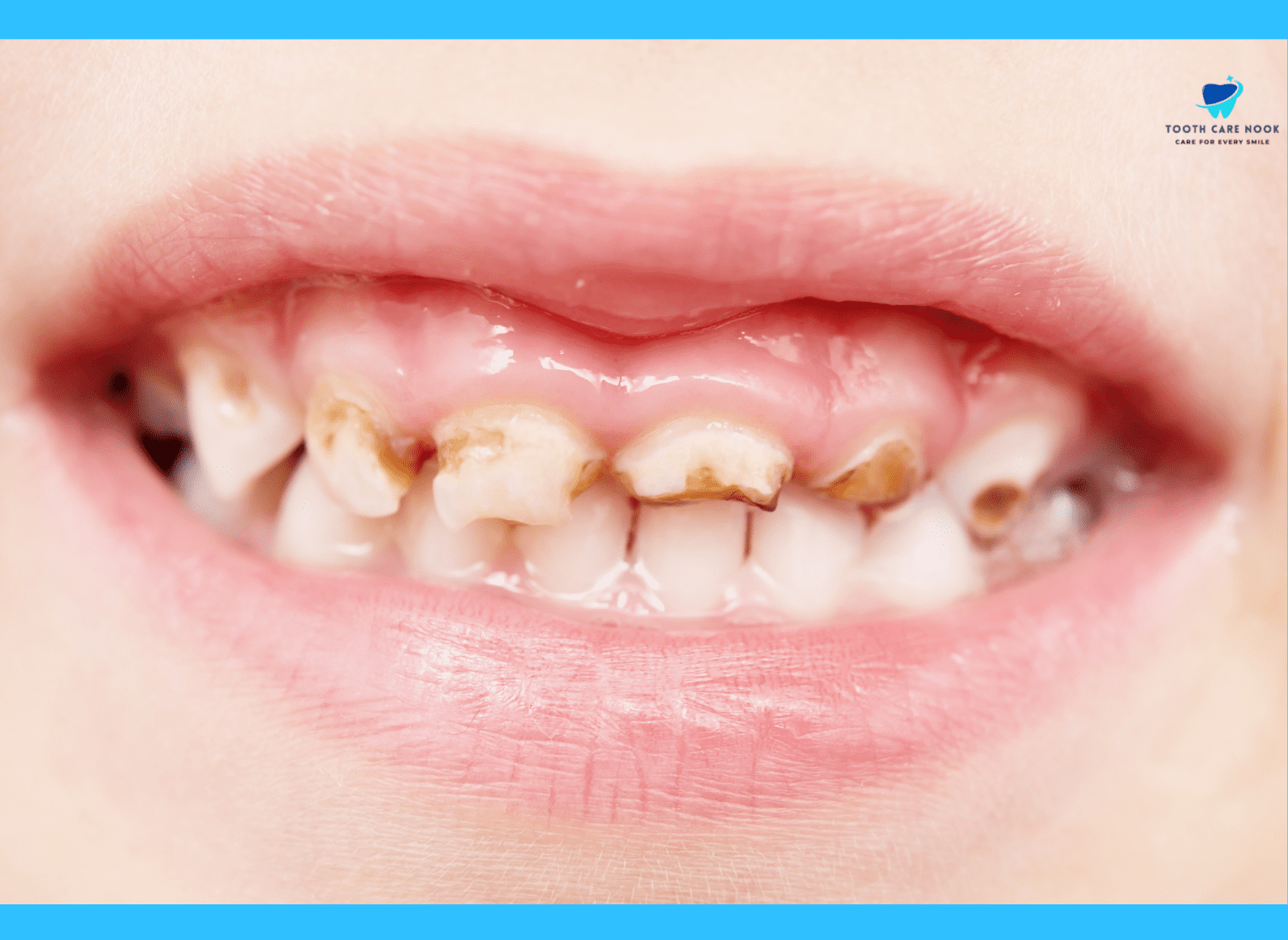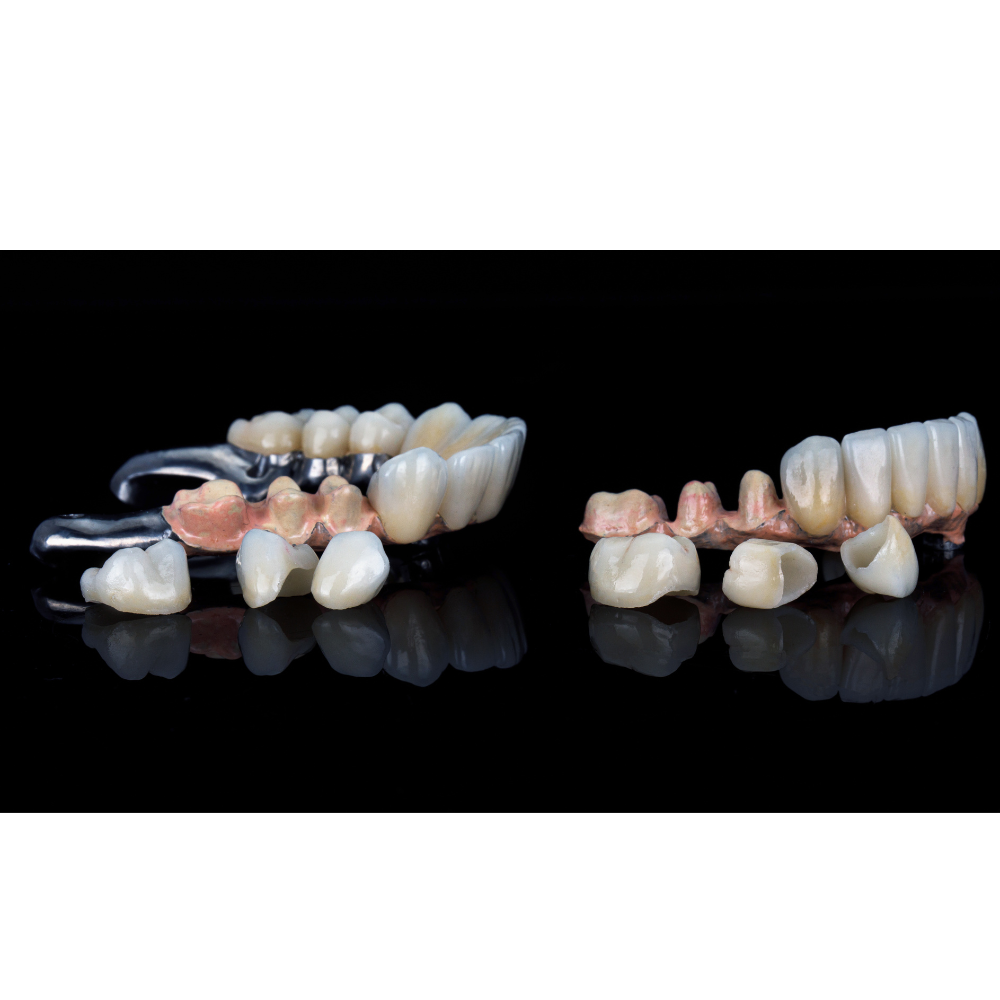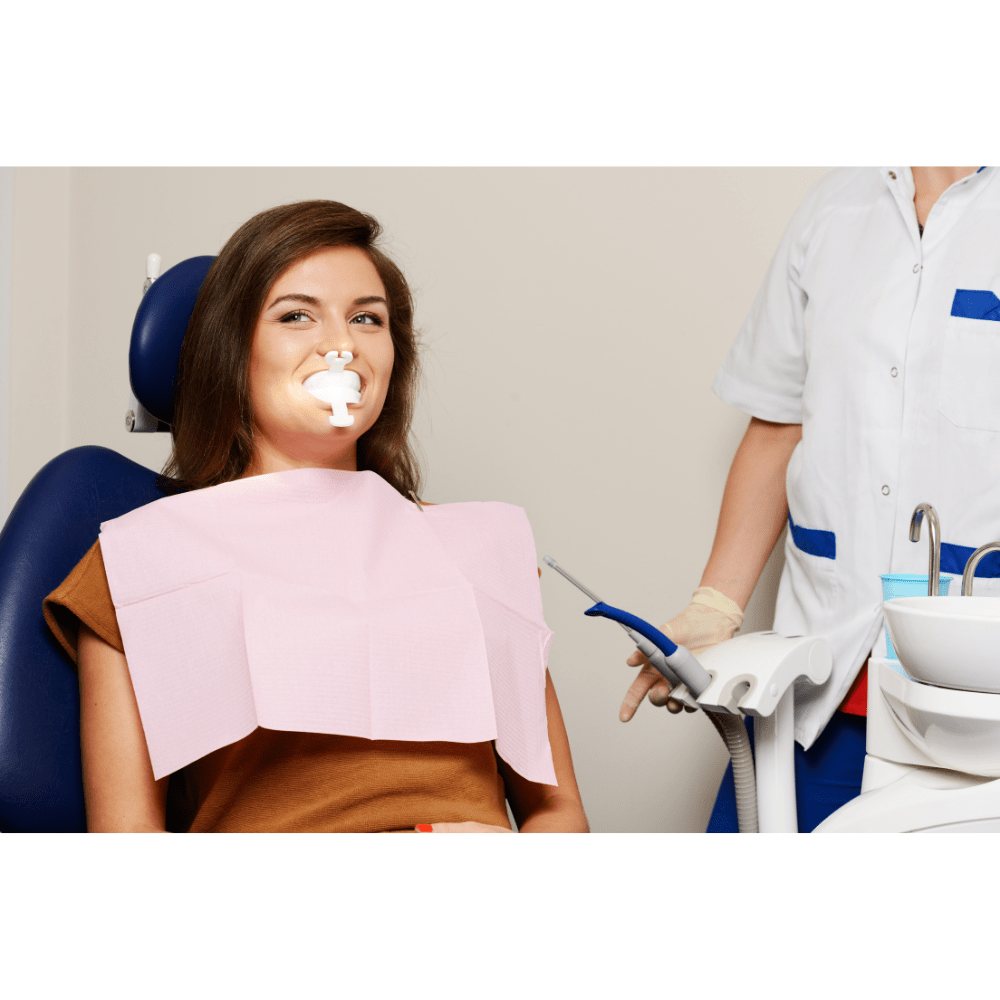Teeth From Sucking Fingers | Effects, Treatment, And All
Finger-sucking is a common habit among children, providing comfort and a sense of security. However, it can lead to various dental concerns when this habit extends beyond early childhood. Teeth from sucking fingers can undergo changes that might affect their alignment and overall oral health.
In this article, we will talk about the effects of prolonged finger-sucking on teeth, exploring the potential changes that can occur.
What Happens To Teeth From Sucking Fingers?
Here are certain issues that can occur to teeth from sucking fingers.
Malocclusion:
Malocclusion is a misalignment of the teeth, such as an overbite, where the upper front teeth protrude over the lower teeth.
Open Bite:
A condition where the upper and lower front teeth do not meet when the mouth is closed, creating a gap.
Changes in Tooth Position:
Continuous pressure from sucking can cause teeth to shift out of their normal positions, leading to crooked teeth.
Altered Jaw Development:
The habit can affect the growth of the jaw and the alignment of the bite.
Roof of the Mouth:
The shape of the roof of the mouth can become altered due to the thumb or fingers pressing against it.
Consequences Of Thumbsucking
Dental Malformations:
Similar to finger-sucking, thumb-sucking can cause issues like malocclusion, open bite, and changes in tooth position.
Speech Problems:
The improper alignment of teeth and jaw can lead to difficulties in pronouncing certain sounds or words.

Gum Issues:
Constant thumb-sucking can cause irritation or damage to the gums.
Social and Psychological Effects:
Older children who continue thumb-sucking may face social stigma or embarrassment, potentially affecting their self-esteem.
Tongue Thrusting:
The habit may lead to a pattern where the tongue pushes against the teeth during swallowing and speaking, exacerbating dental problems.
What Is Open Bite From Thumb Sucking?
An open bite from thumb sucking is a dental condition where the upper and lower front teeth do not touch when the mouth is closed. This results in a noticeable gap between the teeth. The constant pressure from thumb sucking pushes the teeth out of alignment, preventing them from meeting properly.
This condition can affect both the appearance and function of the teeth, making it difficult to bite and chew food effectively. An open bite can also lead to speech issues and may require orthodontic treatment like braces or aligners, to correct the misalignment.
Is Thumbsucking Bad?
Thumbsucking is a natural reflex for infants and young children. However, prolonged thumbsucking especially beyond the age of 4-5 years can have negative effects on dental and oral health.
It can cause changes in the shape of the jaw and roof of the mouth as well as lead to speech problems. While thumbsucking is not inherently bad in early childhood, it becomes a concern if it continues past the toddler years, necessitating intervention to prevent long-term dental issues.
Pictures Of Bad Teeth From Thumbsucking
The following images depict the long-term effects of continuous thumb-sucking:

Orthodontic Treatment For Teeth After Sucking Thumb
Braces:
Traditional braces can help correct misaligned teeth and bite issues caused by thumb sucking.
Aligners:
Clear aligners, such as Invisalign, are a less noticeable option for correcting tooth alignment and bite problems.
Palatal Expanders:
These devices widen the upper jaw to address issues like a narrow palate caused by prolonged thumb sucking.
Retainers:
Retainers help maintain the position of teeth after braces or aligners have corrected the alignment.
Behavioral Interventions:
In some cases, orthodontists may recommend using appliances that discourage thumb sucking, such as a thumb crib, to prevent further damage and aid in breaking the habit.
FAQs
Is It Bad To Touch Your Teeth With Your Fingers?
Yes, it is bad to touch your teeth with your fingers. Fingers can carry bacteria and germs that can be transferred to your mouth, potentially leading to infections or oral health issues. It is best to avoid touching your teeth with your fingers to maintain good oral hygiene.
Is It Ok To Brush Teeth With Finger?
Brushing teeth with your finger is not recommended as a regular practice. While it can be a temporary solution when a toothbrush is unavailable, it is not as effective at removing plaque and food particles. For proper oral hygiene, using a toothbrush with soft bristles and fluoride toothpaste is important.
Is Finger Better Than Toothbrush?
No, a finger is not better than a toothbrush for cleaning teeth. Toothbrushes are specifically designed to clean teeth and gums effectively, reaching areas that fingers cannot. They provide the necessary bristles to remove plaque and food particles.
Should I Keep My Teeth Touching?
No, it would help if you did not keep your teeth touching all the time. Your teeth should only touch when you are chewing or swallowing. Constantly keeping your teeth together, known as clenching, can lead to issues such as tooth wear, jaw pain, and temporomandibular joint disorders. Relaxing your jaw and maintaining a natural position with your teeth slightly apart when at rest is important.



